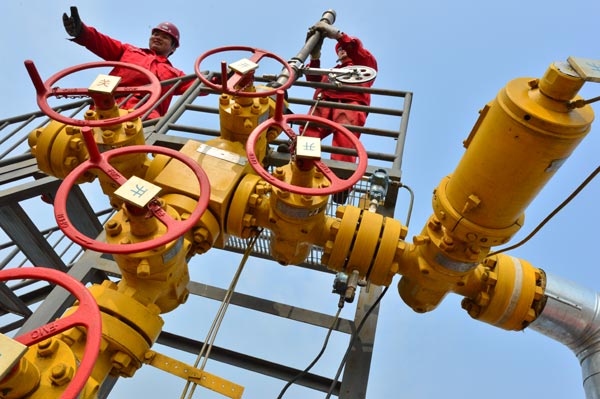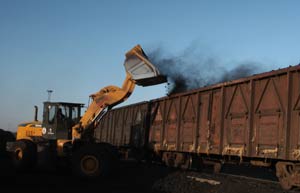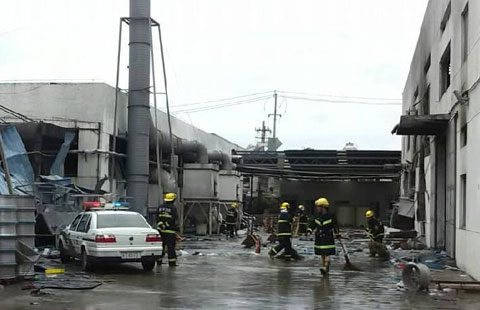Supply-chain management is a must for manufacturers
By Lyu Chang (China Daily) Updated: 2014-08-05 07:19|
 Sinopec technicians in Puyang, Henan province, check gas storage facilities. As China reforms the State-owned sector, a sustained supply chain - from exploration to transportation, providing oil and gas products and services - is required to meet both global and domestic demand. [Photo/China Daily] |
Cheap labor has given Chinese companies an edge for decades when it comes to making products for less than their competitors in Europe or the United States.
But that advantage is fading, and supply-chain management will become a crucial factor, experts said.
"Customs clearance, inventory control and fast delivery can be huge advantages and make a big difference in China, as the competition is so fierce. Today, people want something and they want it fast, so you have to be prepared for everything and predict demand before it happens," said Charles Chase, a consultant in the manufacturing and supply-chain practice of SAS Institute Inc, a US-based provider of analytics software.
Chase said that many international companies are sourcing and selling all over the world, and supply-chain issues are especially demanding in China.
"If you are a manufacturer in China, and you are selling to the United States, gaining real-time information from sentiment analysis by using text mining can help you better understand how your product is selling in those markets, how it is being accepted and how to gather information for future enhancements to the product for sustainability purposes," he said.
E-commerce has become a major force in retailing in China. And, said Chase, online vendors must plan ahead.
That process includes monitoring the likes and dislikes of customers, adjusting demand, managing deliveries to stores, monitoring stock levels and space in warehouses and managing deliveries from factories and manufacturers accordingly.
Cavan Li, a consultant at SAS China, said that supply chains at China's State-owned oil and natural gas companies are playing an increasingly key role, since these companies are under pressure from the drive for SOE reform and the government's scrutiny of monopolies.
"As China is pursuing the process of reforming the State-owned sector amid slowing economic growth, a sustained supply chain - from exploration to transportation, providing oil and gas products and services - is required to meet both global and domestic demand," Li said.
He noted that China National Petroleum Corp, one of the company's major clients in China, uses the information it gets to forecast supply and adjust inventories to limit losses from price fluctuations.
"There is still room for a profit, even for the giant State-owned enterprises," he said.
China's competitive edge is not coming to an end; it is just changing. The shift is marked by a higher level of value-chain and supply-chain management, analysts said.
"China has embarked on a new wave of innovation, seeking higher quality rather than quantity at the cheap end and productivity rather than massive production. Those who anticipate such shifts and trends will be able to cope with the changing and complex business situation that is emerging and adapt quickly enough to create unique competitive advantages," Li said.
 |
 |
|
|
|
- Supply-chain management is a must for manufacturers
- Capital account risks 'can be managed'
- Food scandal hurt McDonald's results
- Western regions to enhance links with train system
- CAAC, Rolls-Royce extend training
- P&G drops weaker brands to focus on core product gains
- Car dealership rules take new direction
- China orders factory safety overhaul













